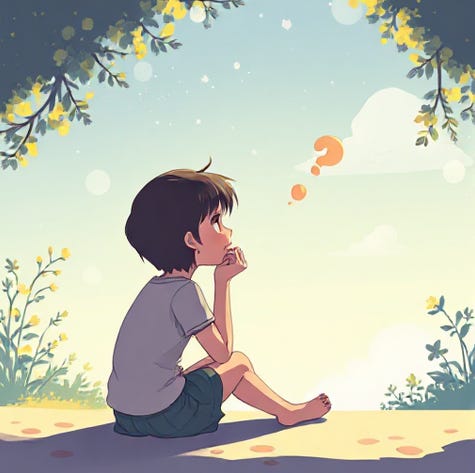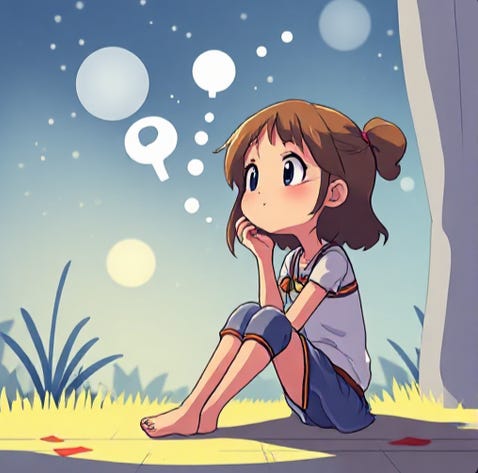The Unquenchable Thirst for Knowledge: Why We Crave to Know Everything and Why We Can’t
Exploring the Human Desire for Omniscience and the Boundaries That Make It Unattainable
Introduction: The Allure of Complete Understanding
Humanity’s relentless pursuit of knowledge has propelled civilizations forward, from the advent of the printing press to the age of artificial intelligence. This desire to know and understand everything is ingrained in our nature, woven into the fabric of our curiosity. Whether it’s delving into the mysteries of the universe, mastering the nuances of a skill, or keeping up with the latest trends and news, the drive to acquire information shapes our actions, decisions, and even our identities. But why do we feel such an insatiable need to know everything? And what happens when this aspiration collides with the inevitable truth that knowing everything is impossible? These questions unveil not only the essence of our human condition but also the limitations that define our existence.
The Roots of Our Curiosity: Evolution and Psychology
At its core, the need to know stems from evolutionary survival mechanisms. Early humans depended on knowledge of their environment, such as recognizing edible plants, predicting weather patterns, and understanding predator behaviors, to thrive. This reliance on information created a neurological reward system where learning and discovery release dopamine, reinforcing curiosity as a beneficial trait. Over millennia, this evolved into a psychological framework where acquiring knowledge is associated not only with survival but also with power, control, and social status.
In today’s world, the stakes have shifted from physical survival to intellectual dominance and social relevance. Information serves as currency in a digital age where those who know more often appear more competent, connected, or influential. Social media and the Internet amplify this phenomenon, creating an echo chamber where the pressure to be informed, or at least appear informed, is unrelenting. Yet, this same psychological wiring that drives our curiosity also confronts us with its paradox: the more we learn, the more we realize how much remains unknown.
The Paradox of Infinite Knowledge in a Finite Mind
The desire to know everything is an ambition riddled with inherent contradictions. The universe’s complexity and vastness are orders of magnitude beyond what even the most advanced artificial intelligence systems can comprehend, let alone a single human brain. Consider the concept of the “known unknowns” and “unknown unknowns,” popularized by Donald Rumsfeld. While we can identify gaps in our knowledge, the “known unknowns”, there exists an even larger realm of things we don’t even know that we don’t know.
Cognitive limitations compound this problem. The human brain, remarkable as it is, operates within constraints: memory capacity, attention span, and the bandwidth of processing power. Furthermore, the overwhelming influx of data in the Information Age creates a paradox of choice, where the abundance of information can lead to analysis paralysis rather than enlightenment. The pursuit of omniscience is not only unachievable but also mentally and emotionally unsustainable, often resulting in stress, anxiety, and a sense of inadequacy.
Why It’s Okay—and Necessary—Not to Know Everything
The impossibility of knowing everything is not a flaw but a feature of the human condition. Our limitations force us to prioritize, focus, and specialize, leading to the richness of collective knowledge rather than isolated foreknowledge. This distributed cognition enables society to progress: no single person can build a skyscraper, perform intricate surgeries, or decode genomes alone. It is the pooling of expertise across diverse fields that makes such achievements possible.
Moreover, embracing the boundaries of our understanding fosters intellectual humility and openness. Accepting that we can’t know everything encourages us to collaborate, ask better questions, and approach problems with curiosity rather than overconfidence. It also frees us from the perpetual cycle of comparison and deficiencies that stems from feeling under informed in a hyper-connected world. When we focus on what truly matters, to us, individually and trusting others to fill in the gaps, we can find purpose and peace within the unknown.
Conclusion: Embracing the Beauty of the Unknown
The need to know everything is a reflection of our deepest fears and highest aspirations. It speaks to our longing for certainty, control, and understanding in an unpredictable world. Yet, the impossibility of achieving this goal is not a failure but a gift. It’s the unknown that drives innovation, fuels art, and sustains our sense of wonder. Instead of lamenting the limits of our knowledge, we can celebrate the collaborative and ever-evolving journey of discovery.
In a world where information is at our fingertips yet ultimate knowledge remains elusive, perhaps the greatest wisdom lies in recognizing the value of not knowing. To be human is to seek answers, but it is also to find meaning in the questions themselves. And in the vast expanse of what we don’t know, there is infinite room for growth, imagination, and connection.



